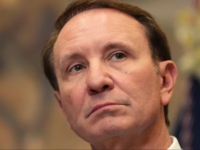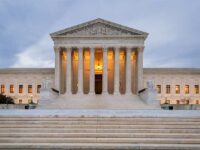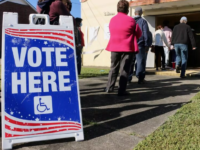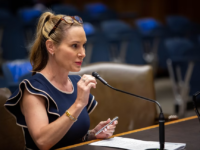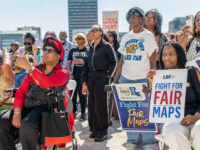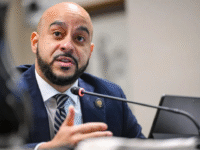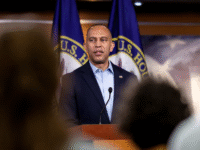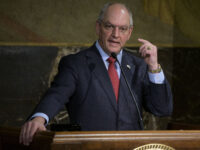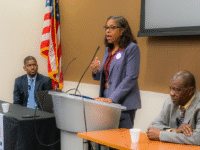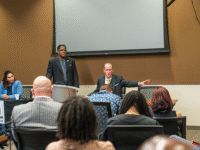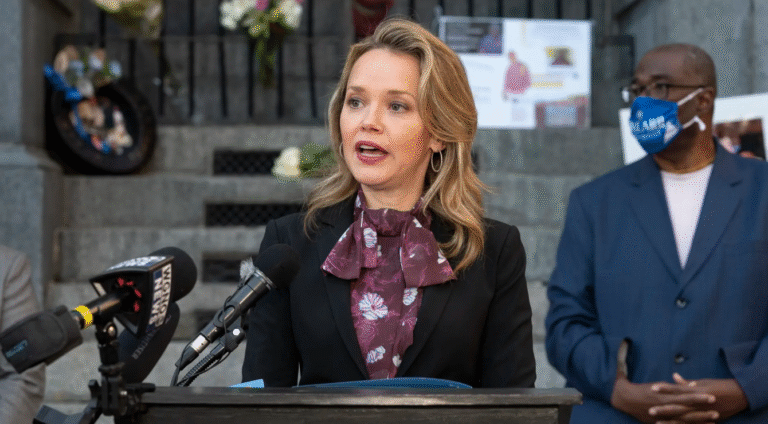Helena Moreno will be the next mayor of New Orleans after securing a first-round victory in Saturday’s primary, avoiding a runoff and cementing her position as one of the city’s most prominent political figures.
Moreno, a Democrat and current City Council President, captured roughly 55% of the vote, easily surpassing the 50-percent threshold needed to win outright. Her main challengers — State Sen. Royce Duplessis and Councilmember Oliver Thomas — finished with about 24 percent and 19 percent respectively. No other candidate broke above five percent.
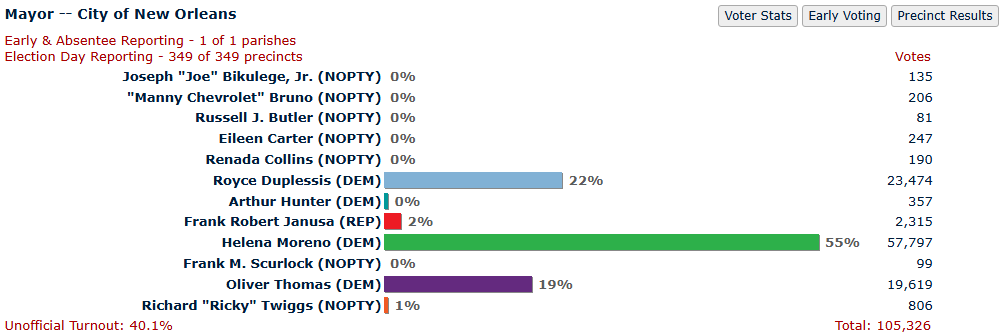
The victory marks a significant transition for City Hall after eight years under outgoing Mayor LaToya Cantrell, whose tenure was marred by controversy and declining approval ratings. Moreno ran on a platform emphasizing fiscal management, infrastructure improvement, and restoring public trust in local government — themes that resonated with voters looking for stability after years of political turbulence.
“Tonight’s victory belongs to the people of New Orleans who believe we can govern with competence, compassion, and results,” Moreno told supporters during her election night speech. “This city deserves steady hands and forward-looking leadership — and that’s exactly what we’ll deliver.”
A Race Defined by Experience and Electability
Moreno entered the race as the clear frontrunner, backed by strong fundraising and years of name recognition from her time in both the Louisiana Legislature and City Council. She was the only candidate to consistently poll above 50 percent throughout the summer, according to surveys from multiple local outlets.
Duplessis, who positioned himself as a generational alternative, drew support from younger progressives and parts of the city’s Black political establishment. Despite a well-organized campaign and a late surge in fundraising, he struggled to consolidate the city’s traditional Democratic base. Thomas, who campaigned on neighborhood investment and anti-crime initiatives, also faced an uphill climb as Moreno’s early momentum became difficult to overcome.
Voter turnout hovered around 36 percent, roughly in line with recent municipal elections — a sign that while the contest generated citywide attention, it did not produce a significant surge in engagement.
Looking Ahead: Moreno’s Challenges in City Hall
Moreno will take office amid persistent challenges: rising insurance costs, infrastructure decay, and concerns about crime and police retention. She will also inherit strained relationships between the mayor’s office and the City Council, which in recent years have often been defined by political infighting.
Her ability to unify governing institutions — and to reassure both business and neighborhood constituencies — will likely define her early tenure.
“She’s a pragmatist,” said one longtime city official. “People may not always agree with her, but she knows how to navigate the machinery of government, and right now, that’s what New Orleans needs.”
A Subtle Undercurrent in the Race
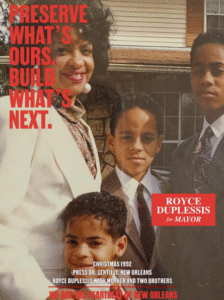
While not central to the campaign, some Black Democrats voiced unease throughout the race about what Moreno’s anticipated victory might represent for the broader balance of political power in the city — long a center of Black political strength in Louisiana.
Those concerns were more about trajectory than ideology. After decades of Black leadership at City Hall, several political veterans privately worried that demographic and economic changes could signal a gradual erosion of Black influence in citywide races.
Sensing that sentiment in the final stretch of the campaign, Duplessis began to speak more directly to it — using language about “preserving what’s ours” and emphasizing the importance of protecting community institutions and representation. While the message energized some voters, it ultimately wasn’t enough to change the race’s trajectory.
A Shift, but Not a Sea Change
For now, Moreno’s win reflects more about voter appetite for managerial competence than a broader ideological realignment. Still, the conversations stirred by this election — about representation, changing demographics, and the direction of the city’s political coalitions — are unlikely to fade.
New Orleans remains a majority-Black city, but its voting patterns and power structures are evolving. As Moreno prepares to take office, how she bridges those divides — and whether Black political leaders feel included in the next chapter of governance — will shape the tone of her administration and, perhaps, the city’s political identity for years to come.


